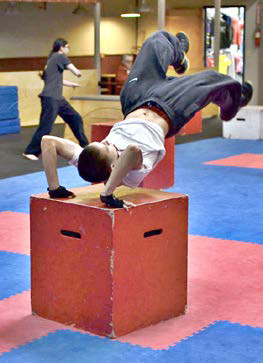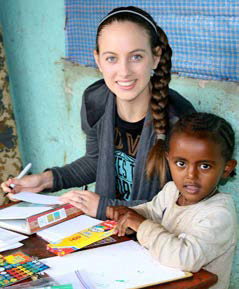BY KIM DEMARCHI
Give yourself and your young child a gift… the gift of waiting. It will foster trust in their natural abilities. It respects the child’s unique developmental time table and their need for mastery. It will help enable them to be a creative problem solver and express themselves.
1 – Wait for them to reach developmental milestones
Children get their first teeth at all different ages, yet we often expect them to reach other developmental timetables like pedaling a tricycle at the same time as everyone else. My son was 14 months old when he first walked. My friend’s son was 9 months old. They are now equally capable walkers. Earlier is not necessarily better. How will I know when my child is ready? A child will walk when he is ready. And he is ready when he walks.
2 – Wait before we interrupt what they’re doing
Let the baby or toddler watch the world without inserting yourself by pointing things out and giving them words. Find out what interests your child. Follow their lead. It will help them develop longer attention spans and help them become an independent learner. Foster their natural curiosity and love of learning from the world without hijacking their every thought.
3 – Wait for discovery before problem solving
Let them sit with challenging problems. Resist from showing them how to get the piece in the correct space of the puzzle. Let them be frustrated; it builds resilience. We err on the side of teaching, rather than letting them learn from their environment. Let them struggle with things such as rolling from back to tummy. I know you want to pull that one arm out of their way, but wait!
When you teach a child something, you take away forever his chance of discovering it for himself. – Jean Piaget
4 – Wait for conflict resolution with peers
Allow them a little bit longer to solve things with their peers. What might appear to us as conflict may just be play. They might be like tiger cubs playfully roughhousing. Or they may surprise us by figuring out a solution among themselves. It will allow them the chance to be problem solvers.
5- Wait for readiness before introducing new activities
Parents are eager for their child to take ballet lessons or start in pee wee basketball. We want them to experience the wonder of The Wizard of Oz movie, but sometimes we rush them and diminish the impact. Earlier is almost never better. Let them be really ready so they can fully engage and get the most of their experience.
6 – Wait for a better understanding of what babies need when they cry
We follow the impulse most of us have to quell our children’s tears as quickly as possible.
Don’t jump in to solve problems immediately. Perhaps standing back and observing will provide a better answer. They might be hot and we give them a toy because we think they’re bored or we pop a pacifier in their mouth.
7 – Wait for ideas from our children
We tend to jump in with our own ideas instead of letting them sit with their boredom and figure out something on their own. Let them invoke their creativity and their problem solving abilities.
The child may learn that she is a creative problem solver, that she can bear discomfort and frustration, and that boredom is just the time and space between ideas.
This approach to parenting is actually natural, intuitive, and easy. You don’t have to think so hard. Having confidence in your child frees you from coming up with appropriate solutions to their dilemmas. It is freeing knowing that your role is not to “make” my kids into something.
Trust that what they come up with is going to be better (more them) than anything we could construct for them. Give them the gift of waiting.

Kim DeMarchi, M.Ed., Certified Parent Educator and Certified Family Coach, is a Tualatin resident, married with 16 year old boy/girl twins, and has been an educator for more than two decades. Kim is trained and certified through Positive Discipline, as well the International Network for Children and Families in a program called Redirecting Children‘s Behavior. Kim is active in supporting her local parenting community by providing workshops, coaching families and writing articles for our newspaper. Kim is a monthly guest on KATU’s AM Northwest. She also blogs twice a month for Knowledge Universe’s Kindercare online community. Kim’s goal for you is to help reduce conflict, foster mutual respect, and create deeper communication and connections with your loved ones. She can be reached through www.EmpoweredParenting.com.



















